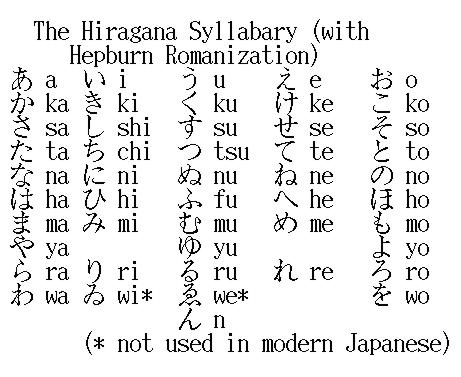

Literal translation (I usually use "literal conversion" without the word "translation") doesn't Studying English, or anyone studying foreign languages.Ĭonsidering the fact that Japanese is a very unique language and super different from English, Sentences translating every single one word from English. There are many Japanese learners who relies too much on English and always try to creat Japanese However, this is often very difficultĪnd many learners refuse to understand without translations. Without relying on English too much, that's the best. Thank you very much for great insights, everyone!Ĭhris-san, you're right if anyone can actually focus on how Japanese language works As long as your native language isn't also in the habit of omitting subjects. And that's the main part, why your translation ALSO should have it's subjects all in it's correct spot.

EVERY japanese sentence has it's subject, even if omitted. I read in one book ("What the textbooks don't tell you" I think it was) a fine chapter about this "omitted subjects" and that newbie japanese learners often fall for the wrong(!) impression, that japanese has sentences without subjects. It's merely the literal translation of the abbreviated sentence. But translating that omitted version isn't the literal translation of the whole sentence. Is just the japanese-omitting.version of:Īll the subjects and objects are there, but just not expressed but understood. So, one reason why I think that you SHOULD translate a sentence always to it's correct english (or whatever your language is) is so that you learn the true meaning of the sentence and get more aware of what exactly got omitted. But just that they're omitted doesn't mean that they're not THERE! Japanese just doesn't work that way, because the subjects (and objects) often are omitted. So the sentence would usually be "anata ga genki desu ka.", or, even more complete: "anata wa anata ga denki desu ka", so the literal translation would either be "Are you well?" or "As for you, are you well?" The same is true with "genki desu ka", where anata ga simply is omitted. So, the LITERAL translation of "watashi wa chris desu" would be: "As for me, I am Chris." The subject simply is omitted, since it's the same as the topic. Like "watashi wa chrisu desu" would USUALLY be "watashi wa watashi ga chrisu desu".Įverything before wa siply is the TOPIC of the sentence. So, both of your example sentences simply have omitted subjects. As you get deeper into the japanese language, you get more accustomed to the concept of omitted subjects and objects. You will make mistakes, but then that's the point of learning, isn't it? The more mistakes you make, the better you'll understand Japanese, and the more you'll be able to think in Japanese without first thinking in English.Īdditionally to what 小狼-san said, I would like to add, that the bit about the literal translation is a bit more tricky. In the meantime, try thinking in English and then translating it into Japanese. That'll happen without forcing it, so forcing it seems like a bit of a risk. Your goal is to use Japanese naturally, and I do rather suspect that making a habit of thinking about Japanese in that very unnatural way might be a hindrance to that.Īs your Japanese skill improves, you will naturally rely less on the English translation anyway, and be more able to think in Japanese to begin with. I think it can be enlightening to think about the literal translation, because it can give you insight into how the language works, but I'm not sure you should really think about the literal word-for-word translation instead of the natural English translation.


 0 kommentar(er)
0 kommentar(er)
